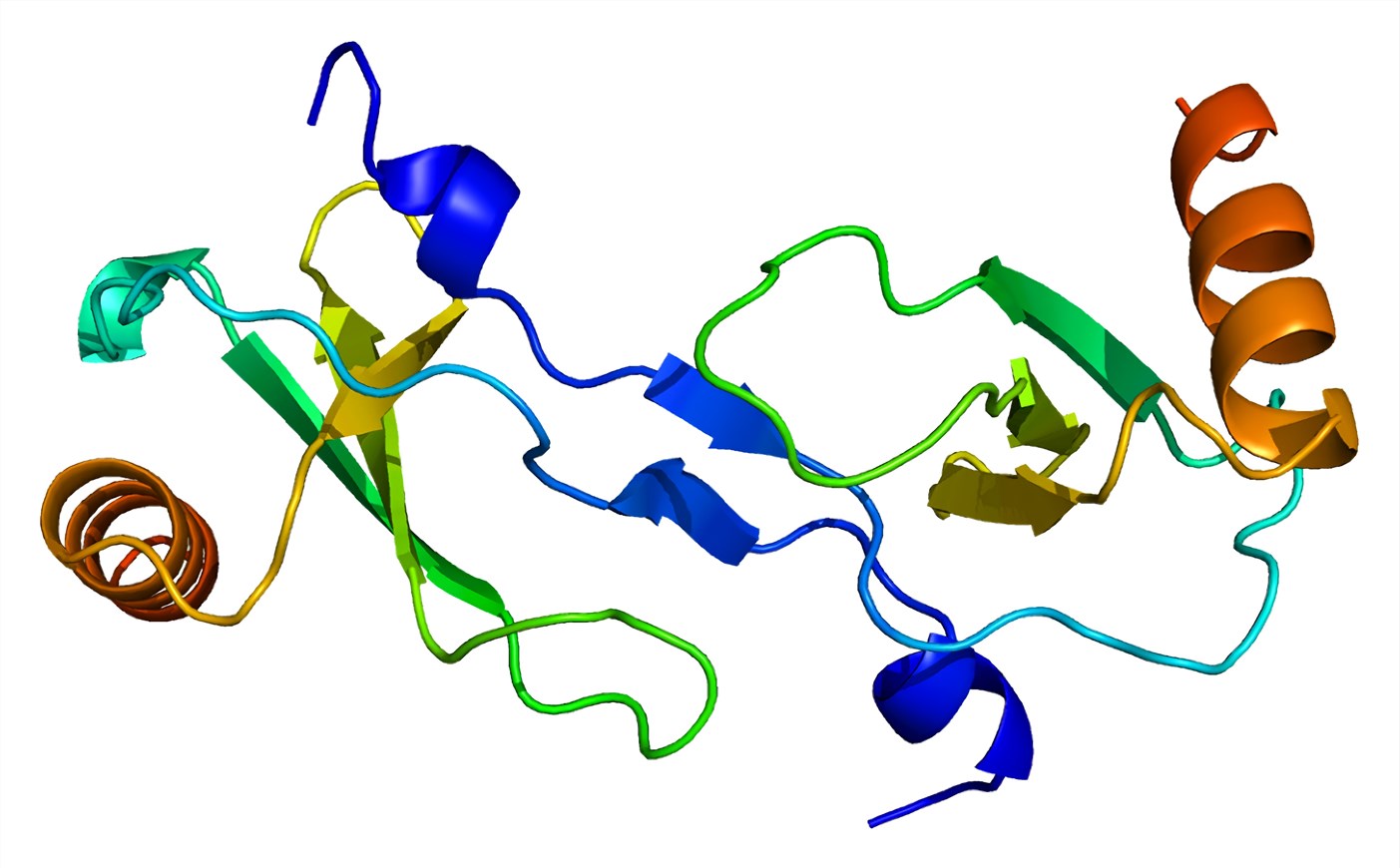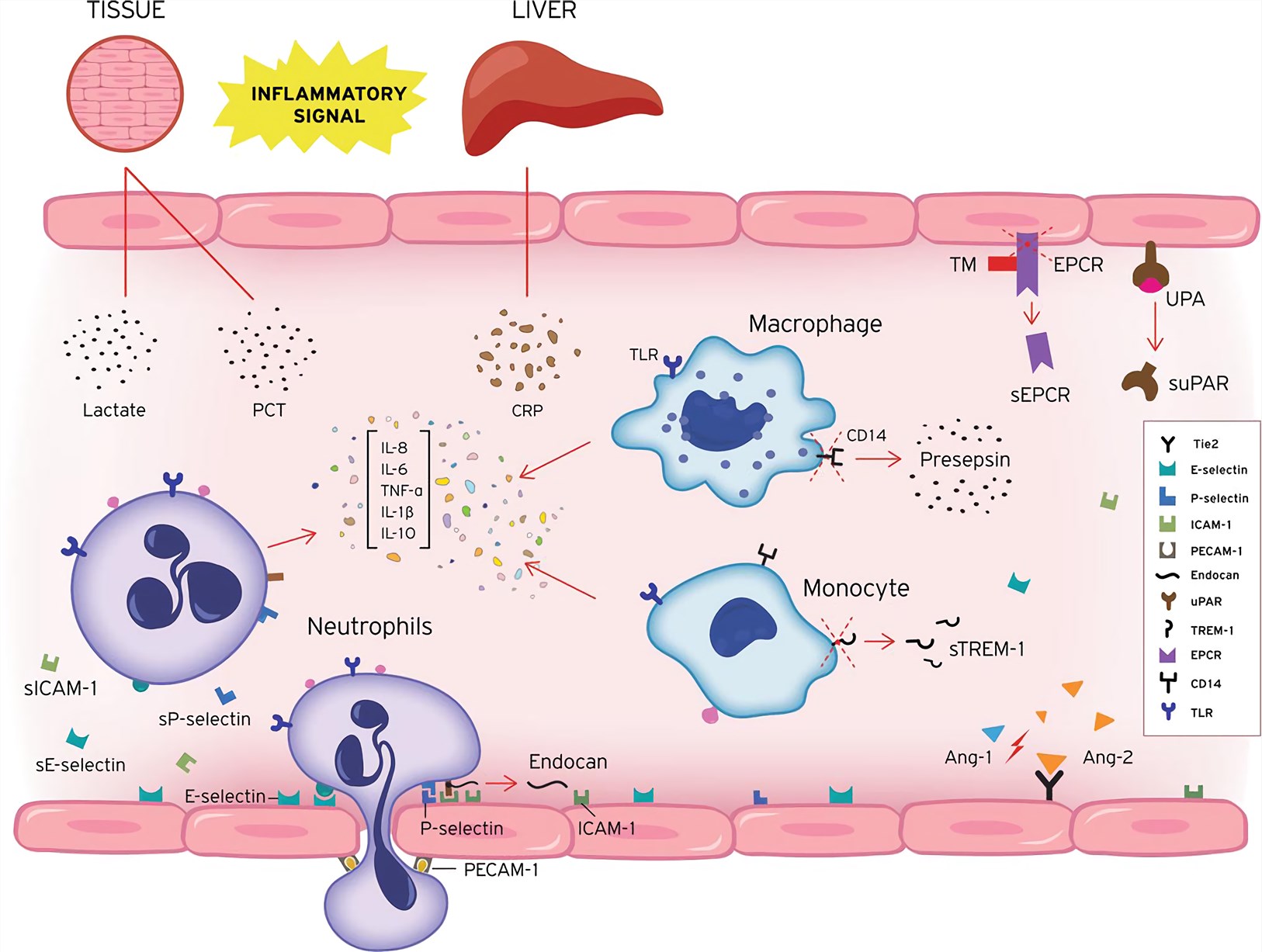Creative Biolabs is a well-recognized expert in the field of in vitro diagnostic (IVD) antibody development for different infections and diseases, including sepsis. We offer high-quality polyclonal, monoclonal, and recombinant antibody development services targeting a wide range of sepsis biomarkers. Here, we focus on the monocyte chemotactic protein 1 (MCP-1) marker.
Introduction of Monocyte Chemotactic Protein 1
Monocyte Chemotactic Protein 1 (MCP-1), also known as small inducible cytokine A2, is a CC subgroup of the chemokine superfamily, a potent chemoattractant, and a regulatory mediator involved in various inflammatory diseases. MCP-1 is secreted by a variety of different cell types, such as monocytes, endothelial cells, smooth muscle cells, and fibroblasts, as an initiating cytokine of the inflammatory cascade. The human MCP-1 cDNA encodes a 99 amino acid (aa) residue precursor protein with a 23 aa hydrophobic signal peptide that is cleaved to generate the 76 aa mature protein. It is a ligand for the seven transmembrane domain G-protein-coupled receptor CCR2, which is shared by other ligands such as MCP-2, MCP-3, and MCP-4. Studies have found that the elevated MCP-1 is related to a number of diseases, including sepsis, Crohn’s disease, lupus nephritis, amyotrophic lateral sclerosis, multiple sclerosis, rheumatoid arthritis, acute pancreatitis, atherosclerosis, and different cancers.
 Fig.1 Structures of MCP-1.1
Fig.1 Structures of MCP-1.1
MCP-1 Biomarker for Sepsis Diagnosis
Prognostic information is useful for reducing the mortality rate of patients with sepsis, to ensure the use of timely and effective treatments. Cytokines are essentially responsible for the systemic inflammatory response syndrome of sepsis and are useful as biomarkers of sepsis. Interleukin-6 (IL-6), IL-8, and IL-10 are the most extensively studied cytokines in diagnosing sepsis. In recent years, more and more cytokines have been assessed as potential new biomarkers of sepsis, such as the MCP-1. A number of studies have reported a significant correlation between levels of MCP-1 with sepsis. For instance, Bozza et al. (2007) reported that MCP-1 can accurately predict the prognosis of sepsis. Another research found a positive correlation between the serum level of MCP-1 and sepsis severity. These studies have suggested that plasma MCP-1 is a useful biomarker in predicting the outcome of sepsis.
 Fig.2 Major biomarkers in sepsis. (Vassiliou, A. G., 2017)
Fig.2 Major biomarkers in sepsis. (Vassiliou, A. G., 2017)
IVD Antibody Development Services for MCP-1 Biomarker
Antibodies are core elements for antibody-based immunoassays for detecting and quantifying antigens of interest in all kinds of samples such as serum, urine, tissue preparations, and so on. Currently, most of the commercially available diagnostic kits designed to measure MCP-1 are based on the ELISA format. At Creative Biolabs, we offer a full range of antibody development, antigen & antibody conjugation, and IVD kit development services to clients across the globe. We develop antibodies applied for immunoassay formats including but not limited to ELISAs, lateral flow immunochromatographic assays, western blot, and flow cytometry.
Creative Biolabs has accumulated abundant experience in the successful completion of many IVD-related projects. We provide services with the best quality and the most competitive prices. Moreover, we also offer custom-built IVD antibody development services to suit the exact requirements of our clients. If you are interested in our services, contact us for more information.
References
- From Wikimedia: By Emw - Own work, CC BY-SA 3.0, without modification, https://commons.wikimedia.org/wiki/File:Protein_CCL2_PDB_1dok.png.
- Vassiliou, A., S. Orfanos, and Anastasia Kotanidou. "Clinical assays in sepsis: prognosis, diagnosis, outcomes, and the genetic basis of sepsis." Sepsis 1 (2017): 54. Distributed under Open Access license CC BY 3.0, without modification.
For Research Use Only.